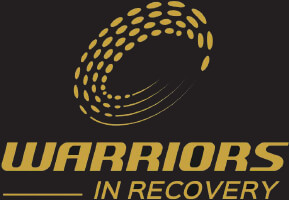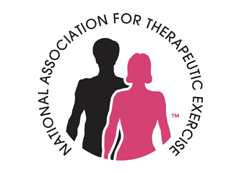Questions & Answers
What makes your therapy unique?
I do not force change on the body. Instead, I work with your body to make improvements, causing changes in motion via improvements in neuromuscular efficiency. I listen to your body’s responses and then customize a treatment based upon these responses. Each client is treated as an individual with their own muscular weaknesses and compensation patterns. Therefore, no treatment session is ever the same. I do not diagnose or treat pathology, but work to improve overall neuromuscular capabilities and the resulting range of motion and strength of that muscle/limb. By improving these aspects, a person will see an increased ability for exercise and physical performance.
My therapy differentiates itself from other techniques because it never attempts to directly lengthen or change the muscle by stretching, heating, kneading, or foam rolling. I do not try to “relax” muscle, but instead try to improve weakened neuromuscular dysfunction, so that your body is better prepared to handle the forces that come from exercise and every day movements.
What causes weakness and neuromuscular dysfunction?
A multitude of factors such as trauma, stress, surgeries, repetitive motions or overuse can contribute to muscle weakness. When you exercise, there is a period of exertion and then recovery. It is normal to feel fatigue. When there is trauma, stress or overuse, the neuromuscular system may not recover until properly rested. If this is habitual, (i.e. sitting at the computer for hours per day, over the course of many years) then the end result can be neuromuscular dysfunction and compensations.
The central nervous system detects various forms of stress and, as a defense mechanism, inhibits the ability of muscles to contract. When a particular set of muscles contract or shorten, the opposing or antagonist muscles lengthen. In contrast, the lengthening muscles may lose their ability to lengthen because the opposite muscles cannot contract. This needs to be restored.
Your body produces a protection mechanism to keep the body from moving into a position of weakness or vulnerability. A sudden trauma to the body may also cause a muscle to become weakened, such as slipping on ice and moving into an extreme range of motion suddenly. My goal is to eliminate this “tightness” by simply improving your muscle’s ability to respond and contract. If you can correct the weakness, then most times you can eliminate the tightness and resistance.
How do you know if you have a neuromuscular dysfunction?
The first and major indication is that something may not feel right.
This can be seen as joint pain, muscle tension or instability of a joint, or in other words tight hamstrings, tension in lower back, shin splints, aching knees, or a hyper-extended joint. Any feelings of pain or tightness can be signs of possible neuromuscular dysfunction or muscle weakness.
What about strength training, stretching, yoga or functional training? Can’t these correct dysfunction, asymmetry and muscle weakness?
The answer is — maybe.
If you have a neuromuscular condition that has been weakened due to prolonged stress or sudden trauma, then moving someone into a position of vulnerability (contraction) may result in other muscles taking over or compensating. This leads to the weak areas staying weak and the strong areas getting stronger (reinforcing the compensating pattern). This can lead to joint deterioration and chronic problems like tendonitis and arthritis due to imbalanced forces acting on the joint. The best course of action is to properly assess which specific motions are limited and which muscles are weakened and then to take a course of action to improve your muscle function.
I can tell you which muscles are weak, test, correct and then give you the tools to improve these weaknesses, so that you can get back to participating in the sports/activities that you enjoy from a position of strength.
How Long Will My First Session Be?
Every human being is unique. The first session, since it involves exploration and discovery of the true underlying reasons for your neuromuscular issues, is the longest and can often require 2.5 to 3 hours plus.
How Should I Dress For My Session?
I suggest that clients wear athletic workout apparel to their therapy sessions. This helps expedite the therapy as clients perform active and passive range of motion movements in their assessments and session. Should you need to undress during a therapy session, you will be completely covered during your therapy except for the treatment area being worked on at the time.
Is There An Age Requirement?
I do not accept appointments for children under the age of 12 years, unless prequalified and accompanied by a parent or guardian. Children under the age of 18 require a parent or adult guardian signed waiver and said individual must be accompanied by parent or adult guardian for services. Appointment bookings cannot be made by or for any person who is under 18 years of age. Please contact office for further information.
Are There Any Medical Conditions I Should Be Concerned With?
If you have any type of medical condition, always talk with your doctor before beginning massage or neuromuscular manipulation treatments. Certain medical conditions will require a signed written release from your physician before massage/manual therapy. Be sure to mention your condition when you book your appointment. Clinical research has shown that massage/manual therapy has benefits for many serious medical conditions. It alleviates pain and aids in the healing process.
Additionally, it is important to inform me if you are currently on any medications. Not only that you take these medications, but also when your last dose was and what the condition is that you are treating.
Are There Any Special Preparations For my Session?
Do not to eat for at least an hour before your session and avoid the consumption of alcohol on the day of a treatment.
What Type of Insurance Do You Accept?
Dominion Performance and Sports Therapy is Private Pay and does not accept insurance. However, many Flex Spending and Health Care Savings Account (HSA’s) programs will pay for Manual Therapy under CPT Code 97140 or Massage Therapy 97124. Please check with your provider to determine your individual coverage. Dominion Performance and Sports Therapy can provide you with receipts for reimbursement. Payment is due in full at time of your session.
Why Don’t You Accept Insurance?
Albert Einstein, the great scientist, once said, “Everything should be made as simple as possible, but not simpler.” I feel that way not only about how I run my solo practice, but also how I conduct my analysis, treatment and ongoing therapy for clients. That’s the main reason I don’t accept insurance – it creates miles of red tape, ties up hours in handling and filing paperwork, and still does not fully cover related costs. My website message is straight-forward – here is what I can do for you, here is an outline of how I do it, here are many other people speaking about how I have helped them, and here is the cost.
I hope you schedule an appointment to see if I can help you.
What Is The Cost For My First Session?
Because of the unique nature of each person’s situation and the customized nature of my therapy, the initial session (on average) requires 2.5 to 3 hours plus. I charge a flat and all-inclusive fee of $495 for this primary session of discovery and treatment. Future sessions, on average, are usually 45 minutes to an hour plus. The standard flat fee of $175 applies to those subsequent updating and maintenance treatments.
A deposit of $175 will be required at time of appointment setting. The deposit of $175 will be credited to your first session.
How Do I Schedule An Appointment?
Services are scheduled by appointment only. Please call me at 210-973-4848. All treatment sessions are scheduled in advance. To accommodate today’s busy lifestyle I sometimes can arrange a ‘same-day’ appointment if time is available. However, to ensure that I am able to accommodate your preferred appointment times, I ask that you schedule with as much advance notice as possible. All first time appointments are reserved with a credit/debit card at the time of scheduling.
What Is Your Appointment Cancellation & “No Show” Fee Policy?
Each time a person misses an appointment without providing proper notice, another person is prevented from receiving a session. 48 hours notice is required to cancel or reschedule an appointment. If you fail to provide 48 hours notice or do not show up for your appointment you will be charged a cancellation fee. A fee of $175.00 of your scheduled appointment cost will be billed to the person for their “No Show”. This fee must be paid prior to your next session. Multiple “No Shows” in any 12-month period may result in termination from service.
Late arrivals are given a 10-minute grace window. After 10 minutes from the scheduled appointment time, the time will be deducted accordingly from your scheduled appointment.
Thank you for your understanding and cooperation as I strive to best serve the needs of ALL clients.







